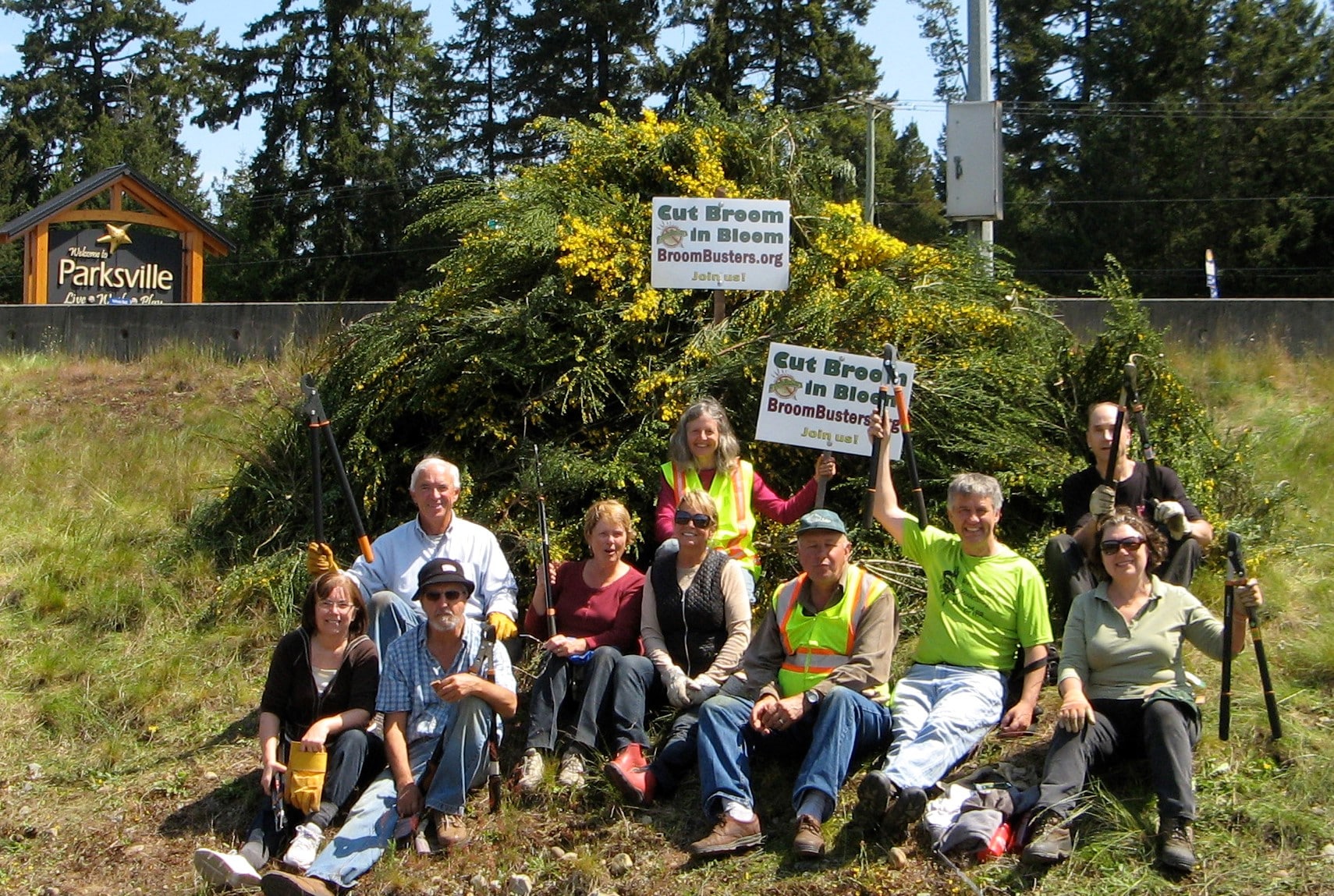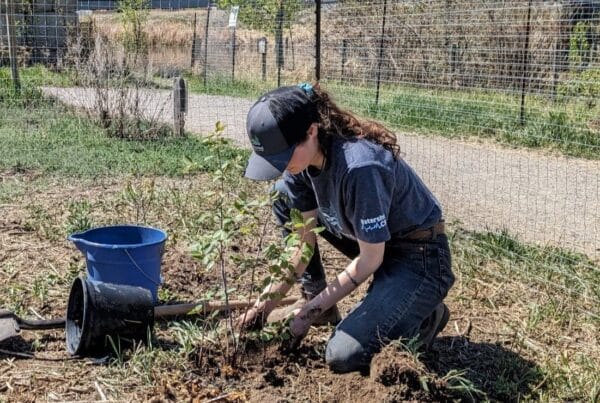By Lisa Houle | April 25, 2023
Vancouver Island is taking a stand. Invasive Scotch broom (Cytisus scoparious) has got to go.
A resolution, calling on local governments to take action on Scotch broom, passed on April 15, 2023, with unanimous support from all members of the Association of Vancouver Island Coastal Communities (AVICC). AVICC encompasses 53 local governments across Vancouver Island and the Sunshine Coast. Broombusters, a community organization which started in Qualicum Beach, has been tirelessly tackling Scotch broom on Vancouver Island since 2006, with over 600 volunteers each year. Broombusters worked closely with Qualicum Beach Council to champion this initiative.
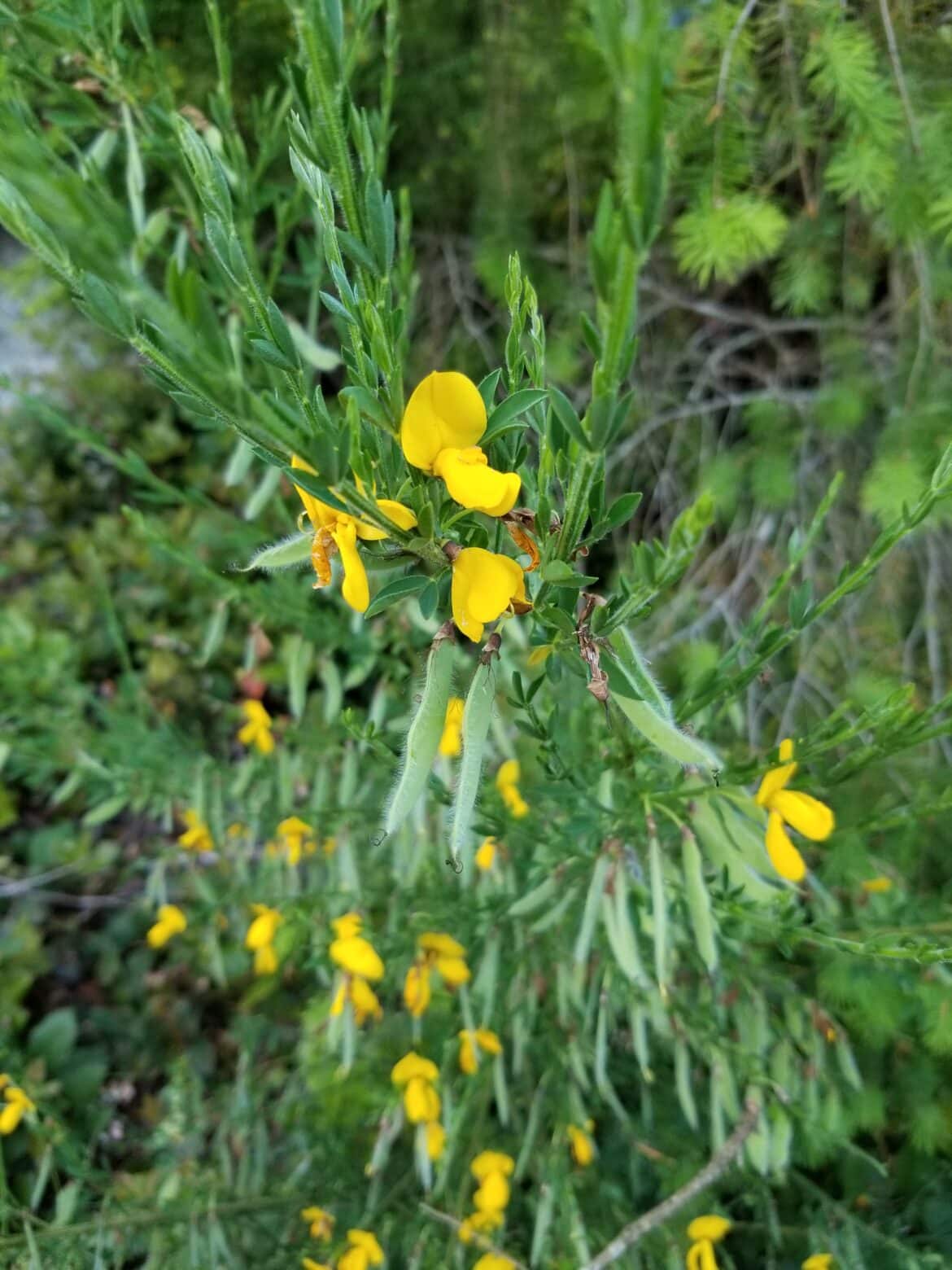
The resolution calls on local governments to use bylaws and policies to control Scotch broom within their boundaries, and to work with the province to take “actionable steps to control the aggressive spread of Scotch broom all across BC.” Joanne Sales, founder and Executive Director of Broombusters, calls this a very significant development, because every local government in the AVICC has agreed: we need to take strong action on Scotch broom.
“Broombusters has called on all local governments to get serious about the spread of Scotch Broom. Scotch broom is terrible on the islands and is getting worse on the mainland,” said Joanne. “We are happy with the decision made by AVICC. This is a big step forward in the battle against broom.”
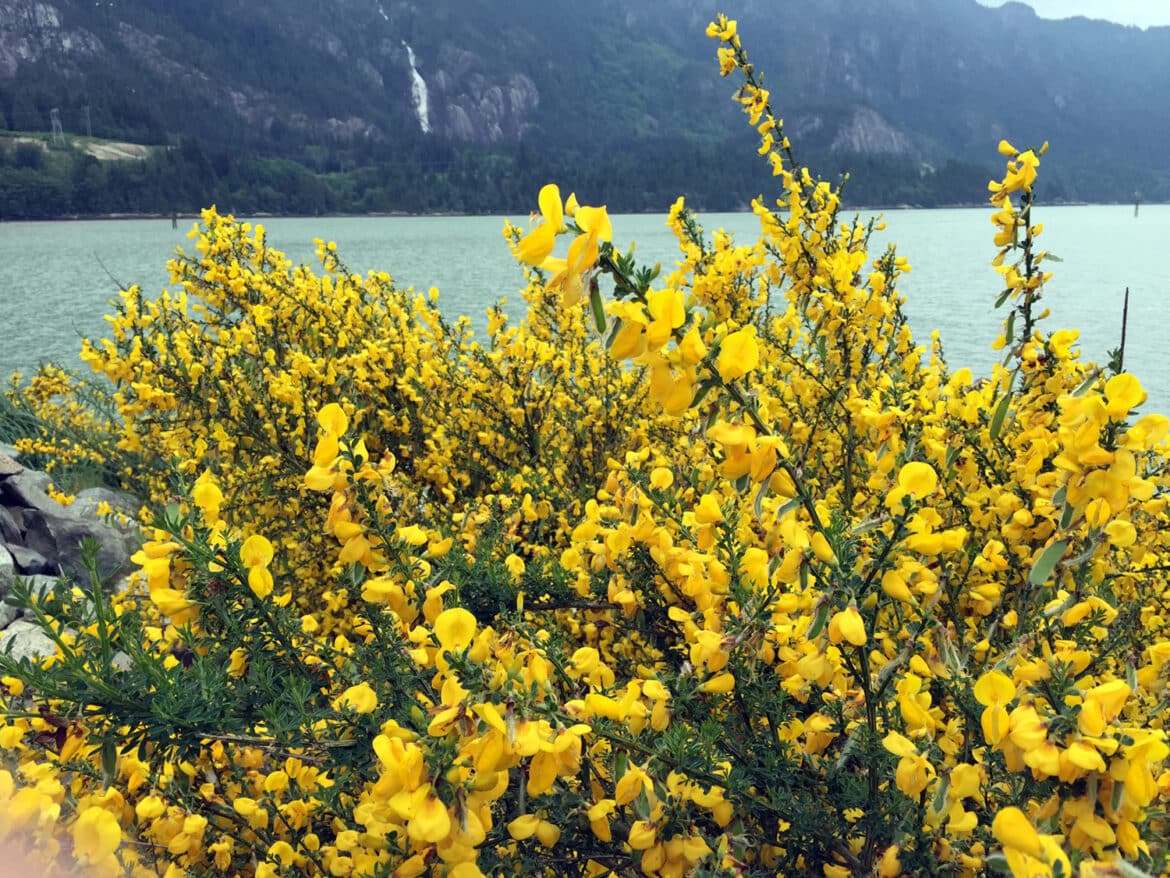
Scotch broom is a common sight along roadways, identifiable by its bright yellow flowers that emerge in spring on a woody shrub that can grow three metres tall. While its flowers are attractive, Scotch broom’s invasive capabilities and impact on biodiversity is not. This hardy plant can live up to 25 years and produce thousands of seeds which are viable in the soil for over 30 years. Particularly fond of disturbed sites, Scotch broom can form impenetrable thickets in open areas, parks, farms, recently logged areas, development properties, and along roadsides and transmission lines. It also impacts sensitive Garry oak woodlands. Scotch broom spreads easily, crowds out native plants, is toxic to wildlife, and increases the fuel load and intensity of wildfires.
Hearing that a governing body is making Scotch broom more of a priority is welcome news to people all over the coastal communities, where Scotch broom has been aggressively spreading for 170 years.
According to a 2021 study, “Scotch broom is one of BC’s worst offenders when it comes to impacting the province’s species at risk. Of the 176 species at risk identified as being impacted by invasive species, Scotch broom negatively affected 36 of them,” said Nick Wong, ISCBC Manager of Science and Research. “Therefore, directly targeting it through management efforts could have wide ranging benefits.”
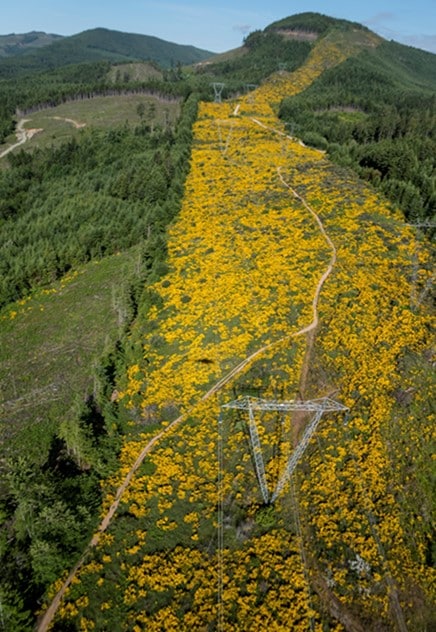
Broombusters is thankful for the support of ISCBC, which recently shared a study completed by environmental consultants on the detrimental impacts of Scotch broom.
“The study pointed to Scotch broom as the invasive species doing the greatest harm to species at risk. That really got councillors’ and directors’ attention, as biodiversity is in such a state of crisis,” said Joanne. “We really appreciate the Invasive Species Council of BC for their help.”
Want to help in the battle against this invasive alien? Broombusters volunteers are always welcome and needed. The group’s slogan is Cut Broom in Bloom. Volunteers have started cutting broom now, all over Vancouver Island, on the Sunshine Coast, and in Coquitlam (the first participating municipality on the mainland). Visit www.broombusters.org for more information.
Lisa is a Communications and Outreach Coordinator at ISCBC. She values a diverse environment and connecting with others about environmental protection. In her spare time Lisa enjoys spending time at the ocean and beach combing for sea glass. You can reach Lisa at lhoule@bcinvasives.ca
Share


